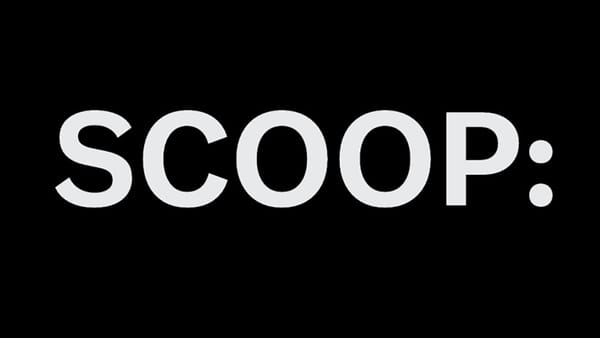Indignity Vol. 2, No. 33: Be smart about being stupid.
THE WORST THING WE READ THIS WEEK™

Who Stole America's Brains? An Indignity-Axios-Atlantic Investigation
A 600-word digest item from Axios today described an 8,000-word article in the Atlantic as "one of the most clear-eyed looks we've seen at how America fractured—and what'll happen if we don't find a way to fix it."
This is a 1,000-word newsletter item about the Axios digest item about the Atlantic article.
The big picture: The headline on the Axios item is "Structural stupidity," while the headline on the Atlantic story is "Why the Past 10 Years of American Life Have Been Uniquely Stupid."
Why it matters: "All day, we're barraged with tiles in the mosaic—this data point, or that hot take," Mike Allen of Axios wrote, to introduce, in accordance with the house style and business model of Axios, a reduction of a long magazine article to one-sentence paragraphs and nested bullet points.
Allen was impressed by the way that in the Atlantic article, Jonathan Haidt compared the last 10 years of discourse to the disorder that reigned after God punished the builders of the Tower of Babel by making their speech unintelligible to one another.
• Allen quoted Haidt as describing how America built "the most capable knowledge-producing institutions in human history," only to see those institutions suddenly become "stupider en masse."
• The readers of Axios—to whom Axios now markets a service that will condense their own written output to the company's signature Smart Brevity™ style—were then given a version of Haidt's warning that Americans are "unable to speak the same language or recognize the same truth."
What happened: In the Atlantic, Haidt blamed social media for breaking down the public's faith in the institutions and shared narratives that "bind together successful democracies."
• Allen and Jim VandeHei of Axios—whose life's work is to reduce the contested values and dynamic politics of a demographically, geographically, and culturally diverse nation into a set of lowest-common-denominator talking points that reassure a powerful and non-representative faction that it and its interests are politically neutral and objectively correct—agreed with Haidt's assessment that social media has empowered toxic political extremists while, as Haidt wrote in the Atlantic, "reducing the power and voice of the moderate majority."
• Behind their very different presentations, the bullet-pointed texticle from Axios and the 8,000-word essay from the Atlantic fundamentally converged on a strategy of using format to convey authority: the trademark brevity of the former communicated that there was no need to say anything else on the subject, while the length of the latter communicated that everything worth saying on the subject must have been said in the article.
• One thing left out of Haidt's article: in his story of how social media fed societal decay, he wrote that "gradually, social-media users became more comfortable sharing intimate details of their lives with strangers and corporations"—without mentioning that this sort of shift was a conscious, top-down business decision by Facebook, when it unilaterally reversed the basic terms of its user experience from being private by default to being public by default, as it transformed itself from a user-driven social network to a data-mining and advertising company selling its users as commodities.
Haidt did blame the design of social media for encouraging bad human tendencies, but kept framing it as a matter of personal moral decay—of people being tempted into falseness and performance and unleashing "our most moralistic and least reflective selves"—while describing the giant and inconceivably wealthy corporations responsible for that design as having done their damage "unwittingly."
To believe in the innocence of Mark Zuckerberg, while fretting about how Americans have lost the trust in institutions necessary to hold a democratic society together, is far more consequentially stupid than any stupid tendency Haidt may have lamented in anyone else.
• "they 'trust me'," Zuckerberg wrote in a chat message as a Harvard undergraduate, while building the original Facebook, to explain why his schoolmates had shared their personal information with him.
• "dumb fucks," Zuckerberg added.
What to remember: The length of the article, or of the summary of the article, makes no difference.
• Neither the Atlantic nor Axios cares about the origins of our current societal and political crises, especially not if they implicate their readerships or business models.
• As for the solutions, Axios assured its readers: "Haidt puts our hope in Gen Z, born between 1997 and 2012, who 'bear none of the blame for the mess we are in.' That generation's admirable embrace of mission and activism could be our salvation."
• Haidt in fact wrote that Generation Z is too coddled, overparented, intolerant of dissent, and depressed to be capable of any such thing.
Whoops! Summarizing is harder than it looks.
When you're running out of things to summarize and the format starts threatening to all run together, you can just insert an arbitrary headline-formatted line like this, leading into a coda:
Axios did run one correction:
• "Editor's note: This story has been corrected to reflect that Gen Z includes people born between 1997 and 2012, not before 1997."
But isn't coddled youth a whole different moral panic?
Not really: Here are some other Atlantic feature stories that were promotionally interlaced with the text of Haidt's essay:
• From the December 2001 issue: David Brooks on Red and Blue America
• From the September 2015 issue: The coddling of the American mind
• From the October 2021 issue: Anne Applebaum on how mob justice is trampling democratic discourse
• From the September 2017 issue: Have smartphones destroyed a generation?
Antagonistic and dismissive online culture has an expression for what Haidt and the Atlantic were doing:
The bottom line: Invoking the Biblical story of the Tower of Babel as a metaphor for the current American condition was a gesture meant to mark Haidt's Atlantic essay and Axios' reading of Haidt's Atlantic essay as belonging to an older, deeply canonical mainstream Western cultural tradition—in effect, as being discursively descended from the literal Word of God—rather than being part of that fractured present-day discourse the writers all claim to deplore; yet the glibness and inaptness of the comparison betrayed a profound alienation from that genuine tradition, and with it a sense of shame and failure, and with that in turn a perhaps unconscious compulsion or wish to see the Old Testament God manifest not as a mere literary device but as a real and active force of cleansing wrath, one that might burn away their evasions and vanities and leave them unprotected against the full brunt of what they deserve.






